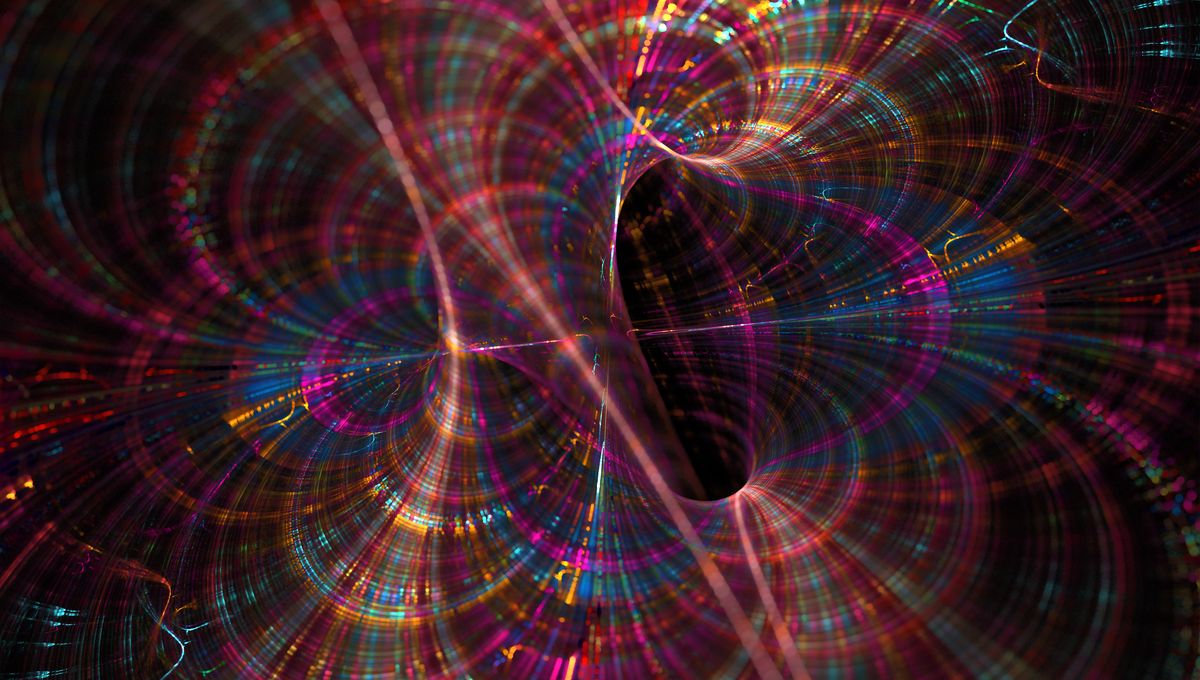
Over a century ago, two theories were put forward to explain all of reality: quantum mechanics and general relativity. Both have been refined and improved over decades and extensively tested. They are solid theories. But ultimately, alone, they can’t explain everything – and together they don’t seem to work. For decades, physicists have been looking at the grand unified theory and two main candidates have been put forward, string theory and quantum loop gravity. Now, a group of researchers have proposed a new one.
It took five years of testing and ironing out, but this new idea has now been presented. They are calling it the “postquantum theory of classical gravity”. The name is certainly not as catchy as the other two contenders, but there is also another major difference. Space-time in this new theory is not quantized.
To bridge the gap between relativity and quantum mechanics, it has been assumed that, ultimately, space-time is made of discrete steps, much smaller than anything that we can measure but discrete nonetheless. In this theory, it is quantum mechanics that changes and this classical space-time leads to a breakdown of predictability once you go to high enough precision.
“Quantum theory and Einstein’s theory of general relativity are mathematically incompatible with each other, so it’s important to understand how this contradiction is resolved. Should spacetime be quantised, or should we modify quantum theory, or is it something else entirely? Now that we have a consistent fundamental theory in which spacetime does not get quantised, it’s anybody’s guess,” Professor Jonathan Oppenheim, from University College London, said in a statement.
Space-time is expected to have energy fluctuation from which particles and antiparticles come into existence for an instant before disappearing. In the postquantum theory of classical gravity, these fluctuations are even more violent compared to the quantized space-time picture. The good news is that the fluctuations lead to a way to test the theory.
In a second paper, published in Nature Communications, the team highlighted how to test the theory. By measuring the mass and weight of an object with high precision, they should be able to tell if space-time is classical. The fluctuation would change the measured weight over time, and if those tiny changes are not seen then the postquantum theory of classical gravity can be ruled out.
“We have shown that if spacetime doesn’t have a quantum nature, then there must be random fluctuations in the curvature of spacetime which have a particular signature that can be verified experimentally,” co-author Zach Weller-Davies explained.
“In both quantum gravity and classical gravity, spacetime must be undergoing violent and random fluctuations all around us, but on a scale which we haven’t yet been able to detect. But if spacetime is classical, the fluctuations have to be larger than a certain scale, and this scale can be determined by another experiment where we test how long we can put a heavy atom in superposition of being in two different locations.”
Testing this is not something we can do tomorrow, but it is equally not something to be tested in a few lifetimes. Some researchers estimate that it could be tested within two decades. And good, because there is a bet going between Professor Oppenheim, Professor Carlo Rovelli, and Dr Geoff Penington, the latter two proponents of quantum loop gravity and string theory respectively. They are betting 5,000 to 1 that space-time is quantized.
The main paper presenting the theory is published in Physical Review X.
Source Link: Bold New Theory Seeks To Unify Einstein's Relativity And Quantum Mechanics